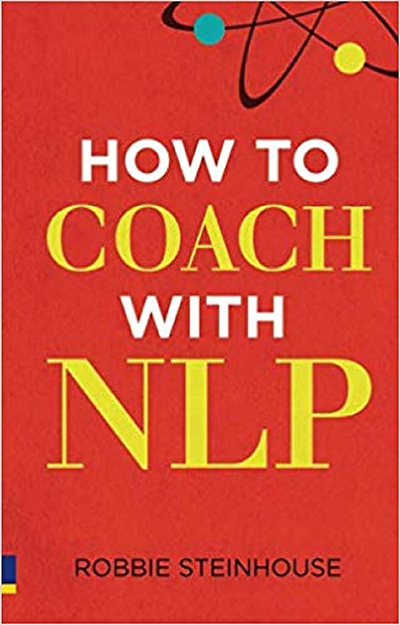Using the Drama Triangle to Improve Your Relationships
Relationships are complex. As an executive coach, I find that clients often use the 80/20 rule dealing with the most troubled members of their friends/family often effectively ignoring the rest.
Often we feel we are being a good friend/parent/sibling (etc.) if we ‘help’ people who seem to be in a constant state of distress. However, these people often drain our energy and have adopted pathological ways of gaining what they really want – attention.
The psychology of attention in relationships
Experiments on mice have shown that there is something called stimulus hunger – a mouse that is ignored is less likely to survive than one that is abused. Indeed in this depressing (and cruel) experiment – mice who were stroked and those that were shocked lived a similar time – the ones who were ignored tended to live the least long. The implications of this are that mammals crave attention and if they can’t get the good sort (love) then they will go after the bad type; anything is better than being completely isolated.
So if you find whilst reading this that you can think of people in your life who can fall into repeated bad or needy behaviours, perhaps it is worth finding out more about the psychology behind this.
These negative behaviours concocted by humans are summarised well by the following model:
The drama triangle

A model I find hugely useful in all the above is the Drama Triangle, created by Stephen B Karpman, based on Eric Berne’s concept of psychological games.
The easiest place to watch the triangle in action is in actual drama; in films, TV programmes and even the news. The Persecutor (or baddie) abuses an innocent victim. The Hero comes to the rescue, but things go wrong, and they find themselves turned into a Victim, for a while, at least, until the ‘tables are turned’.
This is the plot of all of the James Bond films, with this cycle repeated numerous times throughout the movie, with ever more entertaining props – circular saws, sharks circling in tanks and so on.
But the Drama Triangle is serious business.
How to coach people through their own Drama Triangles
In coaching, the client often presents a narrative of how they started with seemingly good intentions – the Rescuer role. They see the bad behaviour of another person and ‘help them out’ by making alibis, keeping secrets or cleaning things up.
They give that person a ‘last chance’ to get on the right path. They labour under the false belief “If I do this, they will change”.
Nothing changes, of course, and the Rescuer slides into self-pity and changes roles to the Victim.
This change of roles is where the drama really kicks in, as it provides a boost of energy.
The new Victim asks themselves the question “Why does this keep happening to me?” Their anger can begin to mount. Finally they may switch roles to the Persecutor, when they become harsh and judgmental – wanting to punish the person they originally sought to rescue.
This may show up as being overtly abusive, or it can be ‘passive aggressive’. Sometimes the original Victim may even punish the Rescuer by blaming their own behaviour on them: a game that Berne called “See what you made me do!”
After some time, the new Persecutor may begin to feel guilty and move back to the Rescuer role. And so on and so forth, perpetually switching roles round the triangle.
All children misbehave at times to gain attention: these patterns are therefore commonplace in human relationships. The patterns can also be intensified by how a family reacts to a child’s need for attention, especially if there is significant dysfunction within a family system. As a person becomes an adult the Drama Triangle becomes habitual with the hidden objective to gain energy (and attention) through negative interactions.
Relationship rewrite: rising above the triangle
If you find that a client is stuck in one of these patterns, teaching him or her the Drama Triangle can help them understand what is going on, and rise above the power of the triangle. They can learn to spot the ‘game invitations’ from out there, and, most useful of all, understand their own motivations for getting hooked into the ‘game’. However irritating the ‘other’, it always takes two to tango. (This can be the hardest learning of all.)
In romantic relationships, the roles tend to be what is called co-dependent: people are initially attracted to each other for the purposes of playing these games. For the relationship to improve, having specialist couples counselling can be the best way forward.
What the participants need to do is to find better, more positive ways of gaining energy, through enjoying intimacy (which doesn’t just mean sex, but deep sharing of thoughts, values, experiences and feelings) rather than through intense conflict.
Is life’s drama a good thing?
I still don’t know whether the high level of drama pumped into our lives by the media is a good thing or not.
All modern cultures seem to need a constant diet of drama, from social media, TV series, movies and newspapers.
Is this an unhealthy craving, like all that sugar in our food? Or is it what the philosopher Aristotle called ‘catharsis’, a way of getting their drama artificially so that they can then get on with real life in a healthy way, enjoying the benefits of highly effective work relationships complemented by supportive and loving relationships at home?
References
- Karpman drama triangle – The drama triangle is a social model of human interaction – the triangle maps a type of destructive interaction that can occur between people in conflict.[2] The drama triangle model is a tool used in psychotherapy, specifically transactional analysis.
- Games People Play – Games People Play is the bestselling book by Psychiatrist Dr. Eric Berne which uncovered the dynamics of human relationships.
- Bringing together NLP and TA to coach Trauma – I continue to be astonished at the amazing transformational power of Robert Dilts’ Re-imprinting Process, and how closely it can relate to the Drama Triangle.
- Coaching relationships with the Drama Triangle
Did you like this post?
Then check out our events and courses!
Register for Advanced Coaching – Processes for Personal and Professional Transformation 3 Day Course
Sign up to our nlp e-learning
Where to find us
For posts, events, free open days and more, follow NLP School on:
Where to find Robbie
Twitter: @RSteinhouse
LinkedIn: Robbie Steinhouse
What to read next
How NLP Can Help With Your Relationships — The Drama Triangle
Improve Your Confidence With NLP










